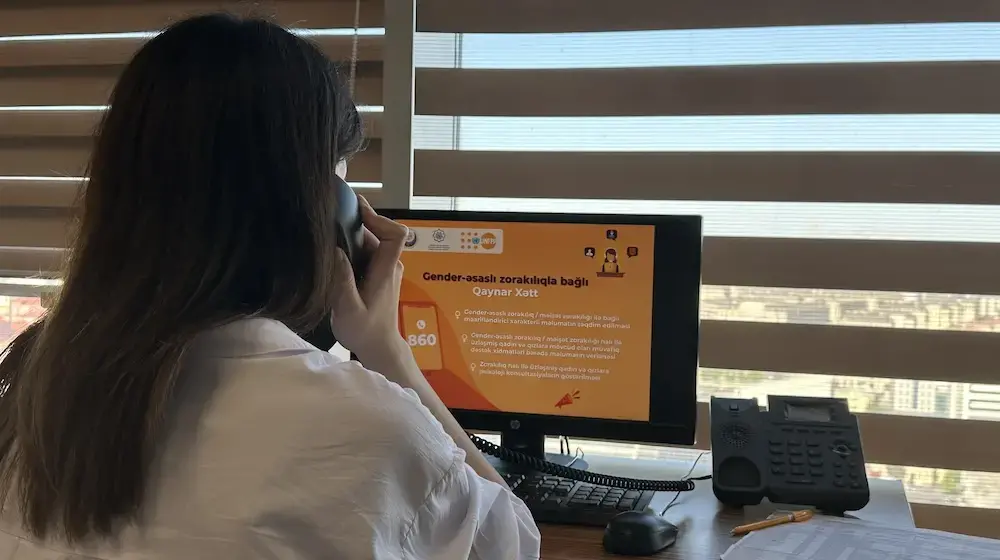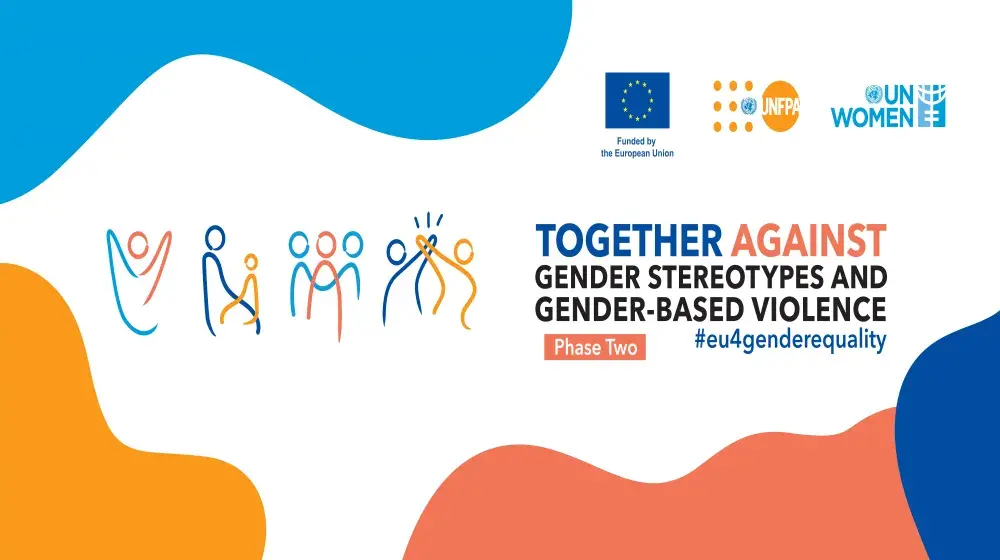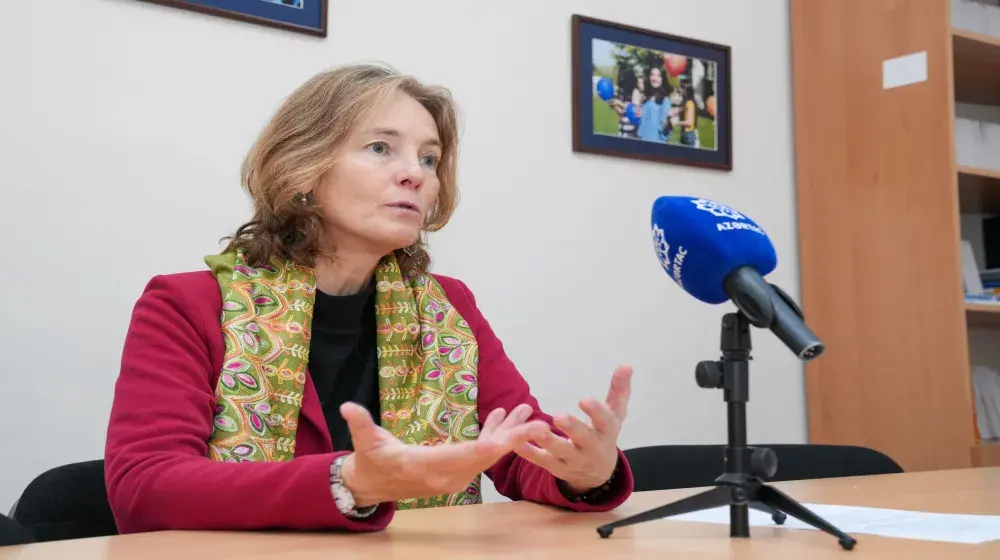“I’m here to show my commitment to ending this poignant phenomenon,” says Zarifa, 23, recalling iterative beatings at her neighborhood. “Every night I hear screams and shouts behind the wall. During the day I watch my neighbor disguising bruises and muttering how intolerable her life is.”
Fine tuning her bicycle gears, Zarifa continued her story about a 19-year-old woman who was forced into marriage and lived next to her. Zarifa was among hundred other participants of bicycle ride organized by UNFPA on November 25th, the International Day for the Elimination of Violence against Women. Hundreds of activists, representatives of diplomatic corps, athletes and even tourists partook in bicycle ride marking the beginning of “16 days of activism against gender-based violence” campaign.
“We need to tell everyone that it is right to speak up about violence against women and girls be it through bicycle march, information sessions, talks and so on,” Mr. Ghulam Isaczai, the UN Resident Coordinator in Azerbaijan, stated at the finish line addressing the need for joint efforts around this campaign.

This year organizers of “16 days” campaign crafted sixteen special posters distributed across the country at schools, women resource centers, and subway stations. The posters displayed portraits of Azerbaijani male celebrities questioning the most pervasive stereotypes about and widespread excuses for gender-based violence.

“I have witnessed self-deprecating ways in which women behave in the face of deeply rooted stereotypes. That’s why it was crucial for me to participate in this initiative,” said Bahram Bagirzade, well-known film and theatre actor, who was depicted on UNFPA poster.
“A woman is nothing without a man”
Maleyka, 16, is a pupil of one of the secondary schools in Neftchala, the city to the south of Baku. She attended discussions around stereotypes displayed on “16 for 16” posters at her school. “I totally disagree with the notion that “A woman is nothing without a man”. Women deserve the decent workplace, rights to voice their problems. Your gender should never hamper your participation in society, nor should it undermine your contribution to family well-being.” (photo of the girl in front of poster).
Facebook followers of the campaign organizers had a chance to listen to male opinion leaders from various spheres of social life speaking about hidden manifestations of different forms of gender-based violence. A philosopher, a writer, an economist and an artist shared their experience with youth in observing and handling gender inequality in their respective fields.
In addition, the campaign organizers filmed 16 short video messages displaying heads of the UN agencies operating in the country as well as the Government and civil society partners. Each of the speakers spoke about the phenomenon of GBV from the perspective of their agencies addressing inter alia the efforts they have undertaken to contribute to elimination of the GBV in the country.




